 Did you know? Promoting gratitude within your family can be as straightforward as initiating a daily gratitude journal! Taking a moment each day to ponder on the positives can have a profound impact on uplifting moods and nurturing a sense of well-being for all. Encourage every family member to jot down something they're grateful for, regardless of its magnitude. Let's embark on this journey of gratitude collectively, strengthening our familial bonds one thankful moment at a time!
0 Comments
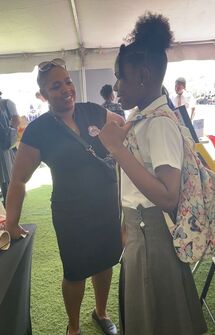
Yesterday I had the opportunity to set up a booth at the Career and College Expo at the A. Louise Garland Thomas High School in Providenciales. This presented an opportunity for students to learn more about Educational Entrepreneurship and Learn and Lead. We will the students the best as they begin to explore career paths and opportunities.
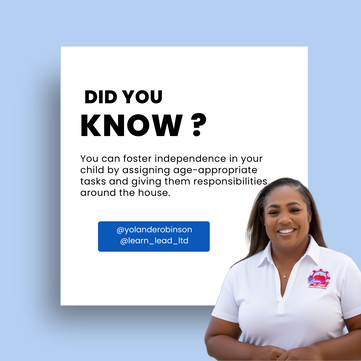 Did you know? You can promote independence in your child by assigning age-appropriate tasks and granting them responsibilities around the house! Encouraging them to tackle these tasks not only aids in the development of vital life skills but also enhances their confidence and sense of achievement. From tidying up their room to assisting with meal preparation, every task imparts valuable lessons in accountability and self-reliance. Let's empower our youngsters to flourish independently and evolve into capable individuals! Share your insights and experiences with task delegation in the comments below!  Happy Earth Day! Today, as we celebrate the beauty and wonder of our planet, it's a perfect opportunity to reflect on the importance of instilling environmental values in our children. Earth Day, observed annually on April 22nd, serves as a reminder of our shared responsibility to care for the Earth and promote sustainable practices. As parents, we play a vital role in nurturing a love for the environment in our children and empowering them to become stewards of the planet. This year, Earth Day's theme, "Planet vs. Plastics," highlights the urgent need to address the global challenge of plastic pollution. Plastic waste poses a significant threat to marine ecosystems, wildlife, and human health, particularly in regions like the Caribbean, where diverse marine habitats are at risk. It's crucial that we educate our children about the importance of protecting these precious ecosystems and taking action to reduce plastic consumption. On this Earth Day, let's seize the opportunity to teach our children about environmental conservation and inspire them to make a positive impact. Here are some simple ways we can celebrate Earth Day together and instill a sense of responsibility in our children: Connect with Nature: Spend time outdoors with your children and explore the beauty of the natural world. Whether it's a nature walk, a trip to the beach, or planting a garden, immersing ourselves in nature fosters a deeper appreciation for the Earth. Reduce, Reuse, Recycle: Teach your children about the importance of reducing waste, reusing materials, and recycling when possible. Limit Plastic Use: Help your children understand the harmful effects of plastic pollution and encourage them to reduce their plastic consumption. Use reusable water bottles, bags, and containers, and avoid single-use plastics whenever possible. Lead by Example: Set a positive example for your children by practicing eco-friendly habits in your own life. Conserve energy, minimize water usage, and support sustainable practices in your daily routine. Today, let's reaffirm our commitment to protecting our planet and inspiring future generations to do the same. By teaching our children to appreciate and care for the Earth, we're shaping a brighter, more sustainable future for all.  Did you know? You can foster your child's critical thinking skills by asking open-ended questions and fostering an environment where they feel comfortable expressing their opinions! Engaging in conversations that encourage deep thought and reflection aids in the development of analytical skills and broadens their perspective. Challenge them with thought-provoking questions such as "What are your thoughts on...?" or "How might you approach...?" Let's empower our young thinkers and witness the expansion of their minds!  In today's rapidly evolving workforce, diversity is not just a buzzword—it's a cornerstone of innovation and success. Yet, when we talk about diversity in the workplace, it's essential to recognize that it extends far beyond race, gender, and ethnicity. One often overlooked aspect of diversity is neurodiversity, which encompasses individuals with neurological differences such as autism, ADHD, dyslexia, and other conditions. As we strive to build more inclusive workplaces, it's crucial to embrace neurodiversity and tap into the unique talents and perspectives of neurodivergent individuals. But what does neurodivergent mean, and why should employers understand what it means to hire a neurodivergent employee? Neurodivergent individuals have brains that function differently from the neurotypical population. This can manifest in a variety of ways, from differences in communication and social interaction to heightened sensory sensitivities and strengths in areas such as pattern recognition, problem-solving, and attention to detail. Embracing neurodiversity means recognizing and valuing these differences as strengths rather than deficits. Employment opportunities are particularly important for neurodivergent individuals for several reasons. Firstly, gainful employment provides a sense of purpose, belonging, and financial independence, contributing to overall well-being and quality of life. Secondly, by harnessing the unique skills and perspectives of neurodivergent individuals, businesses can drive innovation, creativity, and productivity. Research has shown that diverse teams are more effective at problem-solving and decision-making, leading to better outcomes for organizations as a whole. As we witness a growing number of children being identified as neurodivergent, it's crucial to recognize that this demographic will inevitably transition into adulthood. By proactively creating inclusive workplaces and offering meaningful employment opportunities, employers can play a pivotal role in fostering a more inclusive society for neurodivergent individuals. So, how can employers create a more inclusive environment for neurodivergent employees?
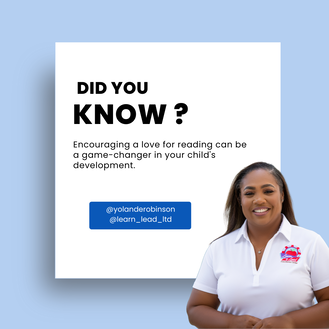 Did you know? Cultivating a love for reading can truly transform your child's development! By infusing reading with joy and interactivity, we have the power to ignite a lifelong passion for books! Craft a cozy reading nook with plush cushions, soft blankets, and their most beloved stories. Dive into diverse genres, immerse in vibrant illustrations, and embark on thrilling adventures together. Let's weave reading into the fabric of our daily lives and witness the blooming love for books in our little ones! 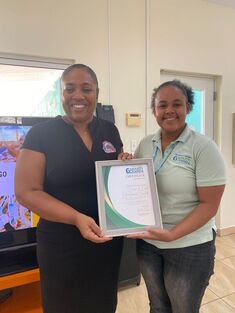
Today we had the pleasure of kicking of the term with the Youth Officers from the Edward Gartland Youth Center. Our workshop, Strategies for Youth Worker Success, focused on five core areas essential for youth worker success:
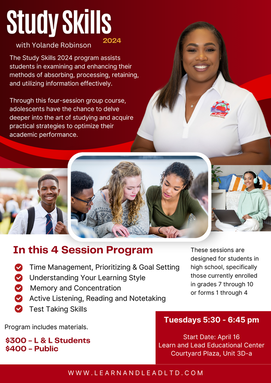 In March and April, we ran our first Study Skills Group class in some time! It was a great success. We were not able to accommodate all requests, therefore we are running this program a second time. The Study Skills 2024 program assists students in examining and enhancing their methods of absorbing, processing, retaining, and utilizing information effectively. Through this four-session group course, adolescents have the chance to delve deeper into the art of studying and acquire practical strategies to optimize their academic performance. Register HERE. 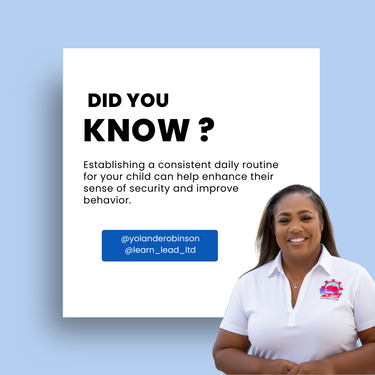 Establishing a consistent daily routine for your child can be transformative in nurturing their sense of security and enhancing behavior. Let's have a heartfelt discussion about one of the most powerful tools for fostering growth: ROUTINE! Whether it's guiding them through a structured morning routine, sharing meals at set times, or winding down with a soothing bedtime ritual, consistency provides a sanctuary of stability and comfort for our little ones. It's not just about structure; it's about instilling lifelong skills in time management and responsibility. By embracing routine, we're not only nurturing our children but also easing the burdens of parenting. Let's embark on this journey together, creating a haven where our children can flourish. Share your insights on building routines in the comments below. Together, let's cultivate a nurturing environment where every child can thrive! As we enter April, Autism Awareness Month, I am compelled to share a few thoughts on fostering understanding and inclusion.
For several years, The Dawn Program for Autism and Behavioral Sciences found a home at Learn and Lead. This was a cherished opportunity for us at Learn and Lead to offer parents and their children supportive spaces where they could gain deeper insights into Autism. It also allowed us to provide invaluable services such as ABA Therapy and parent coaching, all thanks to the dedicated efforts of Nicole Cox and her exceptional team. While the chapter of the Dawn Program at Learn and Lead closed its doors in 2019, those who tune in regularly to my podcast know that Nicole has continued to extend her support whenever needed. My dedication to supporting families with ASD remains steadfast, and I wish to seize this moment to shed more light on ASD—not just for awareness sake, but to catalyze the actions required to better support ASD families within our communities. According to the World Health Organization, 1 in 100 children worldwide are diagnosed with Autism. In the United States, statistics from Autism Speaks reveal a staggering reality: 1 in 36 children and 1 in 45 adults are on the autism spectrum. Additionally, boys are nearly four times more likely to be diagnosed with autism than girls. But beyond the numbers lies a vibrant and diverse community of individuals, each with their own unique strengths, challenges, and perspectives. Autism is not a one-size-fits-all condition; rather, it encompasses a broad spectrum of traits and characteristics that manifest differently in each person. For families living with Autism, navigating daily life can present unique challenges. From sensory sensitivities to social communication difficulties, the journey can be both rewarding and demanding. As neighbors and fellow community members, it's our responsibility to offer support and understanding to these families. So, what can we do to create a more inclusive and supportive community for individuals with Autism and their families?
March isn't over yet! Yolande and Latasha end this month with an episode dedicated to inclusion, the theme of this years' International Women’s Day. While looking at inclusion, this episode of Shifting Perspectives also explores ideas around diversity, equality and women elevating other women through sponsorship. Creating an inclusive environment is the end goal. Together we can grow more conscious and intentional about the progress women have made, while actively cultivating safe and inclusive spaces.
Today is World Down Syndrome Day and I am so pleased to see all the wacky socks out there! I wanted to take a minute to share why this day serves not only to celebrate individuals with Down Syndrome but also as an opportunity to raise awareness, foster understanding, and promote inclusivity within our communities. Down syndrome is a genetic condition caused by the presence of an extra copy of chromosome 21. It affects individuals differently, both physically and intellectually. However, it's essential to recognize that having Down Syndrome does not define a person; they have their unique personalities, talents, and abilities just like everyone else. Awareness of Down Syndrome is crucial for several reasons. Firstly, it helps dispel myths and misconceptions surrounding the condition. By educating ourselves and others, we can break down barriers and foster a more inclusive society. Secondly, raising awareness promotes early intervention and support for individuals with Down Syndrome, ensuring they have access to the resources and opportunities they need to thrive. Lastly, it promotes empathy and understanding, encouraging acceptance and appreciation of differences. What You Need to Know -
Over the last few weeks, I have had the opportunity to speak on the theme of #InspireInclusion. In doing so, I have touched on the topic of microaggressions in the workplace. Microaggressions, although seemly small actions, can pack a powerful punch and affect not only individual morale but the overall wellbeing of a team.
So, what exactly are microaggressions? Well, they're those subtle, often unintentional behaviors or comments that convey hostility or insult towards marginalized groups. They come in many forms, from snide remarks to dismissive gestures, and they can leave a lasting impact on those who experience them. There are three main types of microaggressions: verbal, behavioral, and environmental.
It’s important to note that not all microaggressions are verbal. Non-verbal cues, like eye-rolling or avoiding eye contact, can also send hurtful messages. These silent signals often fly under the radar, making them even trickier to address. Often when I discuss microaggressions in training the first response is, “we don’t do that,” However, as we dive a little deeper, the microaggressions start to feel not so micro! If you are a regular reader of this blog, or have heard me speak before, you know that I strongly feel that the most dangerous bias we can have is believing that we have no bias. I believe this way because we can never underestimate our unconscious biases. Our unconscious bases are the ingrained beliefs and stereotypes that influence our thoughts and actions without us even realizing it. These biases shape the way we interact with others, leading to microaggressions that perpetuate harmful stereotypes and undermine inclusivity. (See my previous blog series on Unconscious Bias if you would like to learn more.) So, what can we do to recognize and minimize microaggressions in the workplace? Here are five tips to get you started:
Remember, we're all works in progress. It's okay to stumble along the way, as long as we're committed to learning and growing. By acknowledging our biases and taking proactive steps to combat them, we can build a workplace where everyone feels seen, heard, and valued.
Yesterday I had the opportunity to spend some time with the women from FortisTCI. We explored the International Women's Day Theme 2024, InspireInclusion. In our time together we chatted about the power of inclusion and the importance of looking inward before you look outward. The question posed was: "How do you make a woman feel comfortable being seated at your table?â€
I shared the following tips:
This year I was honored to spend some time with the women of TCInvest on International Women's Day. If you follow this blog, you know that I have a passion for Diversity, Equity and Inclusion. So, I was excited to speak on this year's theme - Inspire Inclusion. ‘Inclusion’ is often the magic sauce to how we create belonging within our families, communities, and organizations.
I concluded my speak with the following words: "When women support women, incredible things happen. When this support is the kind of no judging, no competing, no intimidating kind of support, we help each other reach higher levels. What I know, is I thrive when I am supported not just by the women in my tribe, but in the everyday interactions that I have with the women around me. We must remember that not all seasons of life come with the tribes a woman may need, and being there for someone else, in a kind gesture, an encouraging word, in creating a seat at the table, can truly inspire inclusion. This year’s theme, inspire inclusion, alerts us to the fact that inclusion is an intention act. Diversity is a fact. Within our workplaces and our communities, we are filled with diversity. Differences in age, gender, education, social economic status, culture, experiences etc. This list goes on and on and on. The thing is Diversity isn’t enough. Diversity simply means we have difference among us, but to get to inclusion we must be intentional. One of my all-time favorite quotes is by Verna Myers, she states - “Diversity is being invited to the party; inclusion is being asked to dance," Here are some tips to Inspire Inclusion in 2024:
Over the last few weeks, we have explored Unconscious Bias and the effect it can have in the workplace and in our schools. To take it a step further, I'm now going to spend time exploring Microaggressions.
Stay Tuned! In today's rapidly evolving workplace landscape, the significance of soft skills cannot be overstated. As a soft skills trainer, I frequently witness recurring themes emerging in my workshops and coaching sessions. One such topic that consistently arises and warrants its own dedicated exploration is unconscious bias.
So, what exactly is unconscious bias? Well, it's those hidden preferences or prejudices we hold towards certain groups of people, often without even realizing it. These biases can influence our decisions, actions, and interactions in subtle yet impactful ways. But how do we develop these biases in the first place? It's essential to understand that they aren't a result of malice or intent; rather, they stem from our upbringing, experiences, culture, and media influences. Our brains naturally categorize information to make sense of the world, and sometimes, these categorizations lead to biases. Now, you might be thinking, "But Yolande, are unconscious biases really that common?" The short answer: yes. Studies have shown that we all harbor unconscious biases to some extent, regardless of our background or profession. They're deeply ingrained in our subconscious and can influence everything from hiring decisions to daily interactions with colleagues. So, why is it crucial for us to be aware of our unconscious biases? Well, for starters, they can hinder diversity, equity, and inclusion efforts within our organizations. They can also lead to unfair treatment, missed opportunities, and a toxic work environment. By acknowledging and addressing our biases, we can foster a more inclusive workplace where everyone feels valued and respected. Now, you might be wondering, "How can I manage my unconscious biases?" Here are my tips:
We all go through it - times when we just can't get tasks finished despite the fact that "nothing" is in our way. Well, nothing except procrastination. Adults, children and teens alike, all battle the inertia brought on by procrastination. Yolande and Latasha touch on topics such as instant gratification and perfectionism along the way to cracking the nut that is procrastination. This episode and it's takeaway tips will help listeners identify what's really in the way, and move from delay to done.
Yesterday, I had the pleasure of joining the nominees for the Annual Prestige Awards at Beaches Turks and Caicos as their guest speaker for their Empowerment Breakfast. This year’s theme- Dream. Dare. Deliver. We had an awesome time igniting and re-igniting dreams, gaining strategies to manage hurdles that arise and choosing day to day actions that help us move towards our dreams.
Congratulations to all the nominees. |
Author
Yolande Robinson, M.Ed. PodcastShifting Perspectives is a conversation with Yolande and Latasha that challenges Listeners to fuel themselves with diversity in the way they think, the way they work, the way they parent and the way they live their lives.
Listen to Shifting Perspectives on Apple Podcasts, Audible, Amazon Music, Spotify, Google Podcast, Stitcher, Pocket Casts, Overcast, Castro, Castbooks, or Podfriend. Archives
July 2024
Categories
All
|





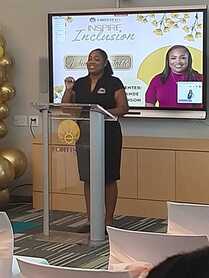
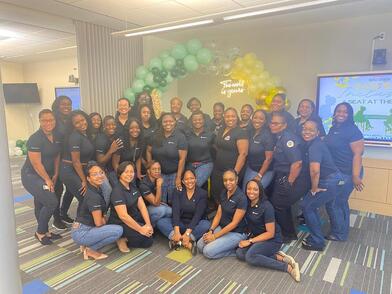
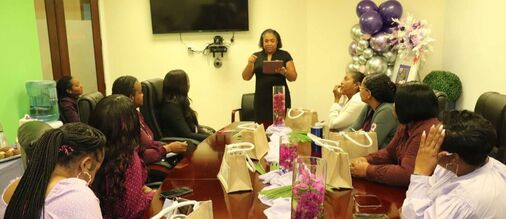
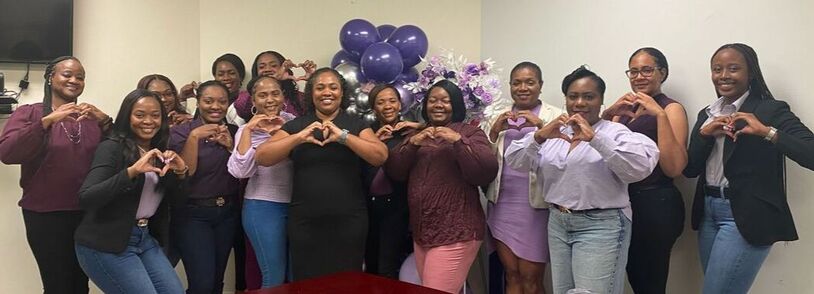
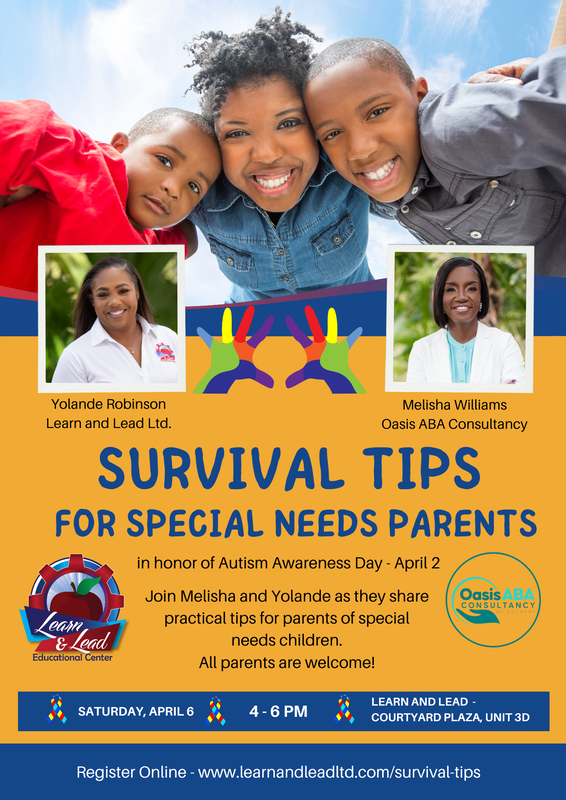
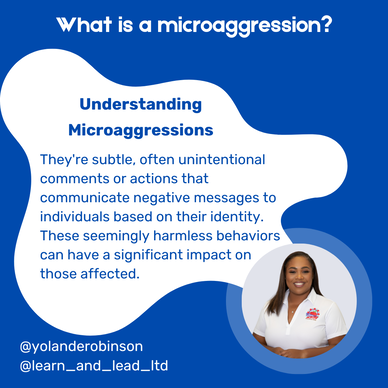


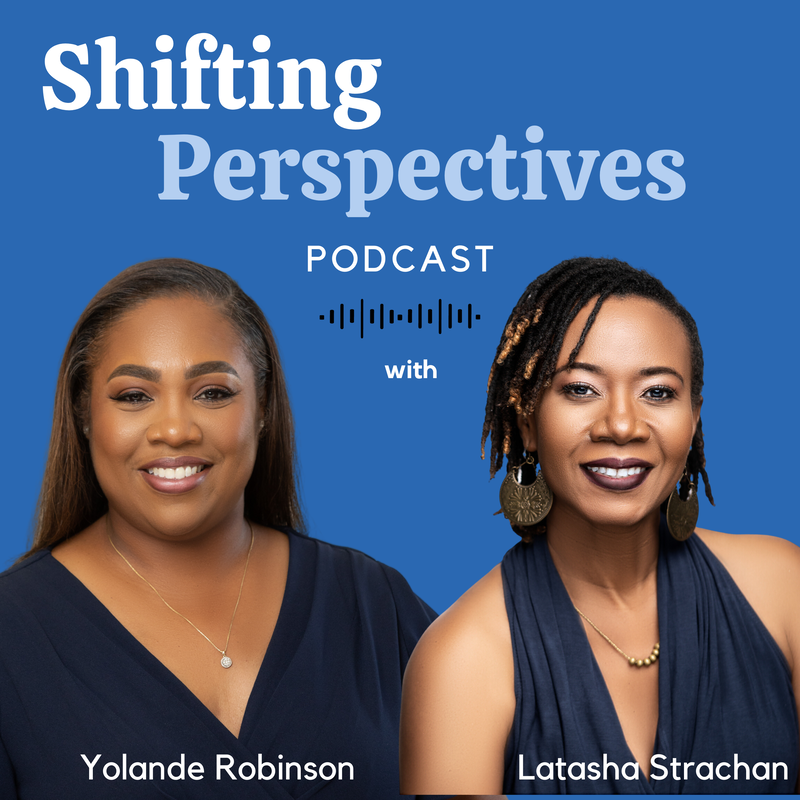
 RSS Feed
RSS Feed